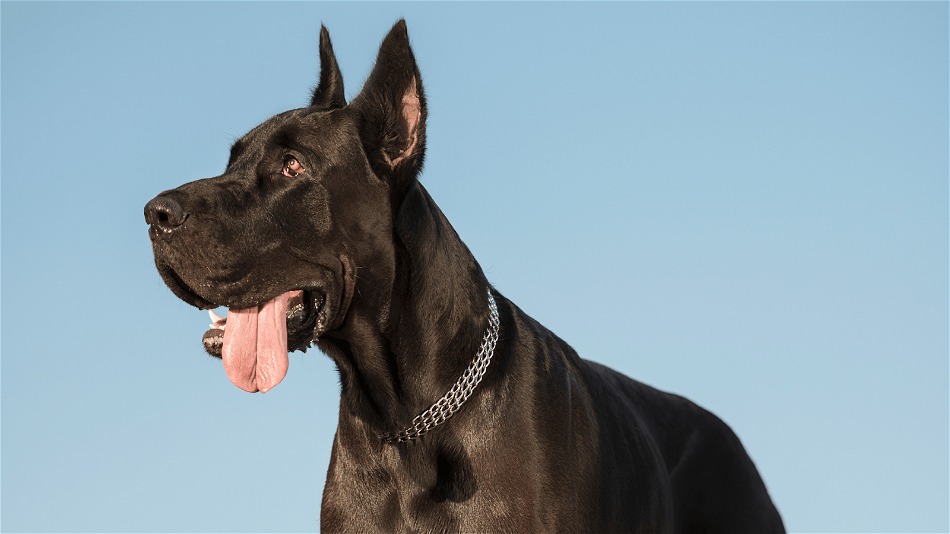
Great Dane: Majestic and Gentle Giant
The day I brought home my Great Dane puppy, Max, I had no idea how much he would change my life. As he grew from a clumsy pup into a gentle giant, our bond deepened in ways I never expected.
I’ll never forget the time I was sick in bed with the flu, feeling absolutely miserable. Max, by then fully grown and towering over me, somehow sensed my distress. He padded into my room, his nails clicking softly on the hardwood floor, and gently rested his massive head on the edge of my bed.
His warm brown eyes gazed at me with such concern and love that I couldn’t help but smile, despite feeling awful. Throughout that day, Max refused to leave my side. He lay on the floor next to my bed, occasionally rising to check on me with a soft nudge of his nose.
His presence was incredibly comforting, like having a protective, furry guardian angel. When I finally felt well enough to get up, Max stayed close, his huge body providing support as I made my way to the kitchen. That day taught me that Great Danes truly live up to their nickname of «gentle giants.»
Despite his intimidating size, Max had the softest heart, and his unwavering companionship during my illness only strengthened our already deep bond. It’s moments like these that make me grateful every day for the unique joy of sharing my life with a Great Dane.
History and Origin of the Great Dane
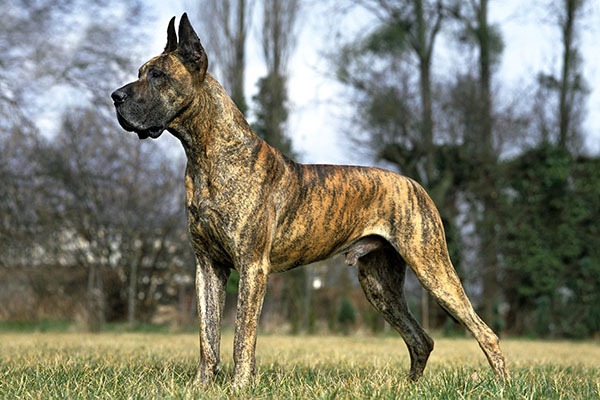
The Great Dane, often referred to as the «Apollo of dogs,» boasts a noble and ancient lineage. Despite its name, the breed does not originate from Denmark but rather from Germany. Historically known as the «German Mastiff» or «Danish Hound,» the Great Dane was originally bred to hunt wild boar and protect estates. These dogs are believed to descend from the English Mastiff and Irish Wolfhound, which were crossed to create a powerful yet elegant breed. The Great Dane’s imposing size and strength were essential for taking down ferocious prey, but over time, they have been selectively bred for a more gentle temperament, making them beloved companions today.
Physical Characteristics of the Great Dane
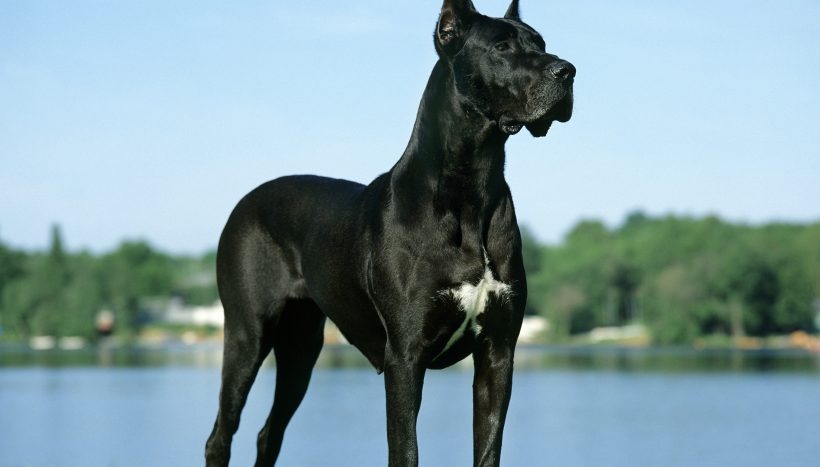
Great Danes are renowned for their impressive size and stature. They are one of the largest dog breeds, and their physical presence is both awe-inspiring and majestic. Key characteristics include:
- Height: Males typically stand 30 to 34 inches tall at the shoulder, while females are slightly shorter, ranging from 28 to 32 inches.
- Weight: Males weigh between 140 and 175 pounds, and females between 110 and 140 pounds.
- Coat: Short, dense, and smooth, coming in various colors including fawn, brindle, blue, black, harlequin, and mantle.
- Head: Rectangular and finely chiseled with a pronounced stop and deep-set, expressive eyes.
- Ears: Naturally floppy, although they are sometimes cropped to stand erect.
- Tail: Long and tapering, carried low when relaxed but may rise slightly when the dog is alert.
Personality and Temperament of the Great Dane
Great Danes are often described as gentle giants due to their calm and affectionate nature. Despite their formidable size, they are known for being friendly, patient, and great with children. They are loyal and protective of their families, making them excellent watchdogs. However, their gentle disposition means they are not typically aggressive. Great Danes are also intelligent and eager to please, which makes them relatively easy to train. Their playful and social nature means they thrive on human companionship and do not like being left alone for long periods.
Basic Needs of the Great Dane
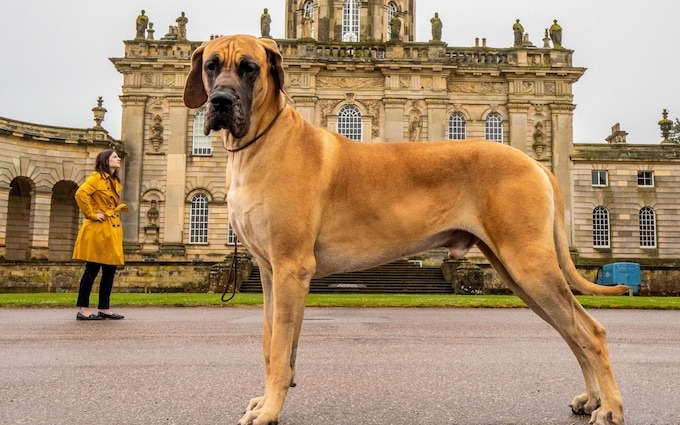
Caring for a Great Dane involves meeting several basic needs to ensure they lead a healthy and happy life:
- Diet: A high-quality, well-balanced diet is crucial for their growth and maintenance. Due to their large size, Great Danes require a diet that supports joint health and overall well-being.
- Exercise: Regular exercise is important, but it should be appropriate for their age and size. Puppies should not be over-exercised to prevent joint issues, while adults benefit from daily walks and playtime.
- Grooming: Great Danes have low grooming needs due to their short coat. Regular brushing to remove loose hair, occasional baths, and routine nail trimming are sufficient.
- Healthcare: Routine veterinary check-ups, vaccinations, and preventive care are essential to monitor their health and address any potential issues early.
Suitable Environment for the Great Dane

Great Danes require a living environment that accommodates their size and activity level. They thrive in homes with enough space to move comfortably and access to a secure yard for play. Despite their large stature, they can adapt well to apartment living if given sufficient exercise and mental stimulation. Great Danes are sensitive to temperature extremes; they can be prone to overheating in hot weather and may need extra protection in cold conditions. Above all, they need a loving and supportive home where they can be part of family activities.
Training and Care for the Great Dane
Training a Great Dane is a rewarding experience due to their intelligence and eagerness to please. Early socialization and obedience training are crucial to ensure they grow into well-mannered adults. Positive reinforcement methods, such as treats and praise, work best. Consistent training helps prevent unwanted behaviors that can be challenging to manage due to their size. In terms of care, maintaining a routine that includes regular vet visits, proper nutrition, and exercise is vital. Mental stimulation through toys, puzzles, and interactive play also keeps them engaged and happy.
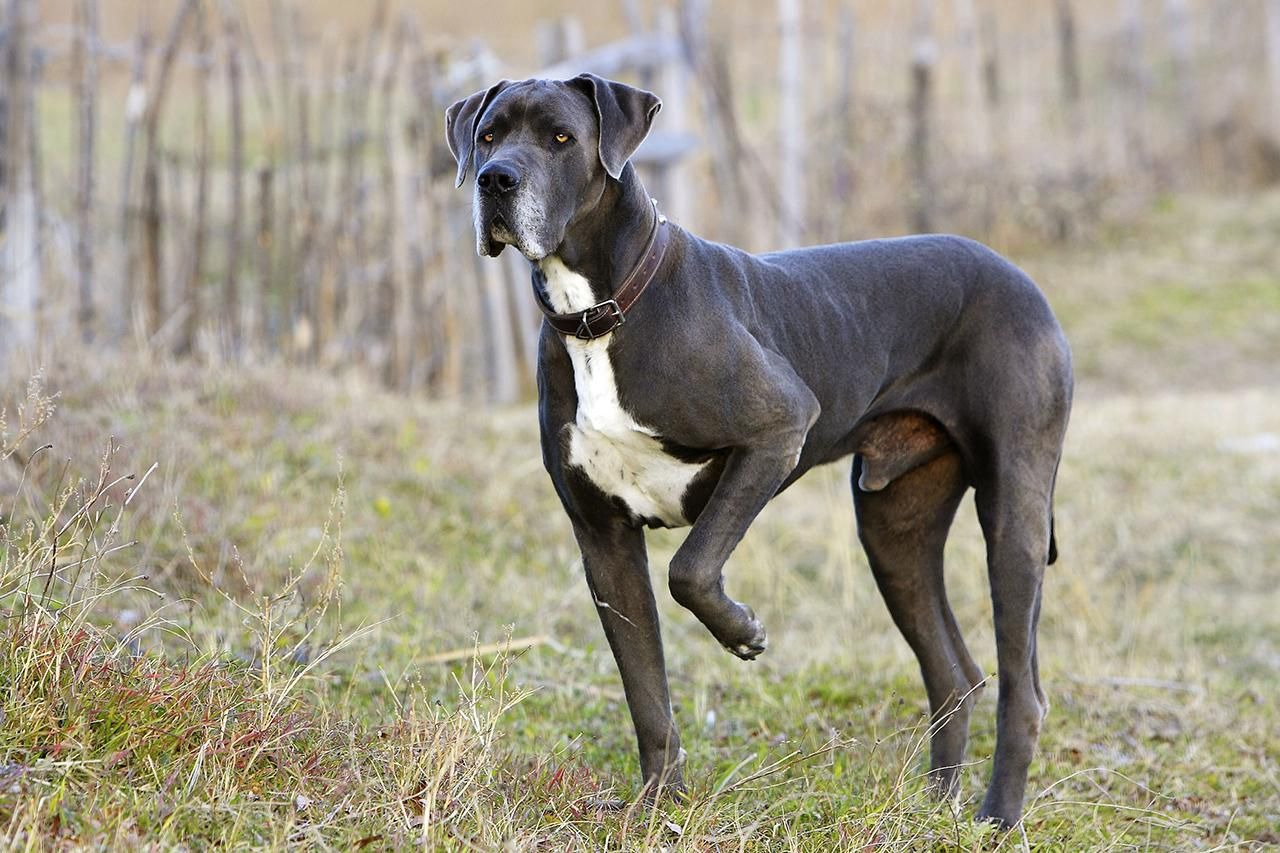
Health and Common Issues in the Great Dane
Great Danes are generally healthy dogs, but they are prone to certain health issues due to their size and genetics:
- Hip Dysplasia: A common condition in large breeds that can lead to arthritis and mobility issues.
- Gastric Dilatation-Volvulus (Bloat): A life-threatening condition where the stomach twists, requiring immediate medical attention.
- Cardiomyopathy: A heart condition that affects the heart muscle and can lead to heart failure.
- Joint and Bone Problems: Issues such as osteoarthritis and panosteitis can affect their mobility and quality of life.
- Eye Problems: Conditions like cataracts and progressive retinal atrophy (PRA) can occur.
Life Expectancy of the Great Dane
The Great Dane has a shorter lifespan compared to smaller breeds, typically ranging from 7 to 10 years. Despite their relatively brief time, they bring immense joy and companionship to their owners. Providing a balanced diet, regular exercise, and preventive healthcare can help ensure they live a healthy and fulfilling life.
The Great Dane in Daily Life
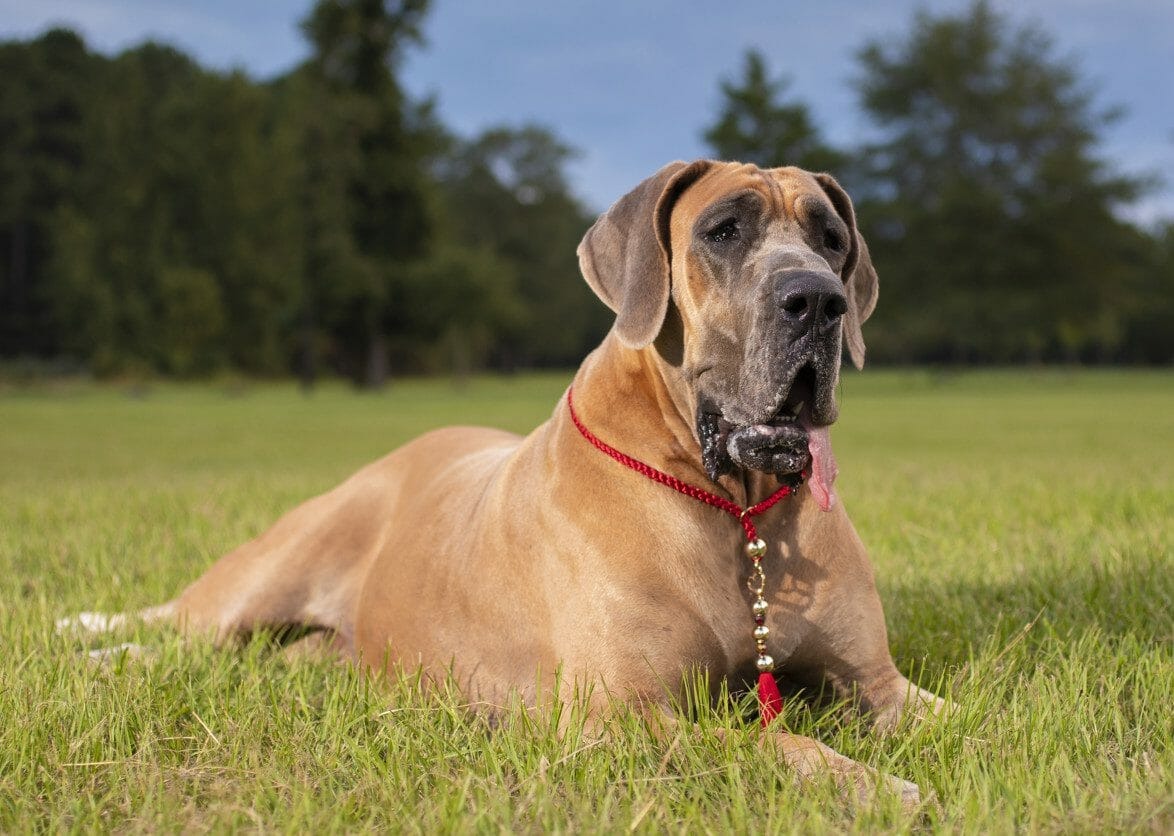
Living with a Great Dane is a unique and rewarding experience. These dogs bring a sense of grandeur and elegance to any home. Their affectionate nature and loyalty create strong bonds with their families. Great Danes are often described as «gentle giants» because, despite their size, they are incredibly loving and gentle with children and other pets. Whether it’s a leisurely walk, a playful romp in the yard, or simply lounging on the couch, a Great Dane’s presence enriches everyday moments with their majestic yet gentle demeanor.
Frequently Asked Questions
Are Great Danes good with children?
Yes, Great Danes are known for their gentle and patient nature, especially with children. They are typically affectionate and tolerant of handling, making them excellent family pets.
Do Great Danes require a lot of exercise?
Despite their large size, Great Danes are relatively low-energy dogs that require moderate exercise to stay healthy and fit. Daily walks and supervised play sessions are usually sufficient to meet their exercise needs.
Are Great Danes prone to health problems due to their size?
Great Danes may be prone to certain health issues, including hip dysplasia, bloat, cardiomyopathy, and osteosarcoma. Regular veterinary check-ups and a balanced diet are essential for monitoring their health and addressing any potential issues early on.
Do Great Danes drool a lot?
Yes, Great Danes are known for their tendency to drool, especially after eating or drinking. While some individuals may drool more than others, it’s essential to keep a drool rag handy to wipe their mouth and prevent drool from getting on furniture and floors.
Are Great Danes good guard dogs?
Great Danes are naturally protective of their families and make excellent watchdogs due to their size and bark. While they may not be aggressive, their mere presence is often enough to deter potential intruders.
Are Great Danes good apartment dogs?
While Great Danes can adapt to apartment living, they require plenty of space to move around comfortably due to their large size. Additionally, they need regular exercise and outdoor access to stay physically and mentally fit.
Do Great Danes get along with other pets?
Great Danes are generally sociable and get along well with other pets, including dogs and cats, especially when properly socialized from a young age. However, their large size and strength should be taken into consideration when introducing them to smaller pets.
Do Great Danes bark a lot?
Great Danes are not known to be excessive barkers, but they will bark to alert their owners to potential threats or unusual noises. Early training and socialization can help prevent excessive barking behavior and teach Great Danes to communicate more effectively.
Are Great Danes easy to train?
Great Danes are intelligent dogs with a strong desire to please their owners, but they may also exhibit stubborn tendencies, particularly during adolescence. Consistent training and positive reinforcement techniques are key to successfully training a Great Dane.
Are Great Danes prone to separation anxiety?
Great Danes are affectionate and loyal dogs that form strong bonds with their families. While they may experience some degree of separation anxiety when left alone for long periods, early training and gradual desensitization can help prevent and manage separation anxiety behaviors.
